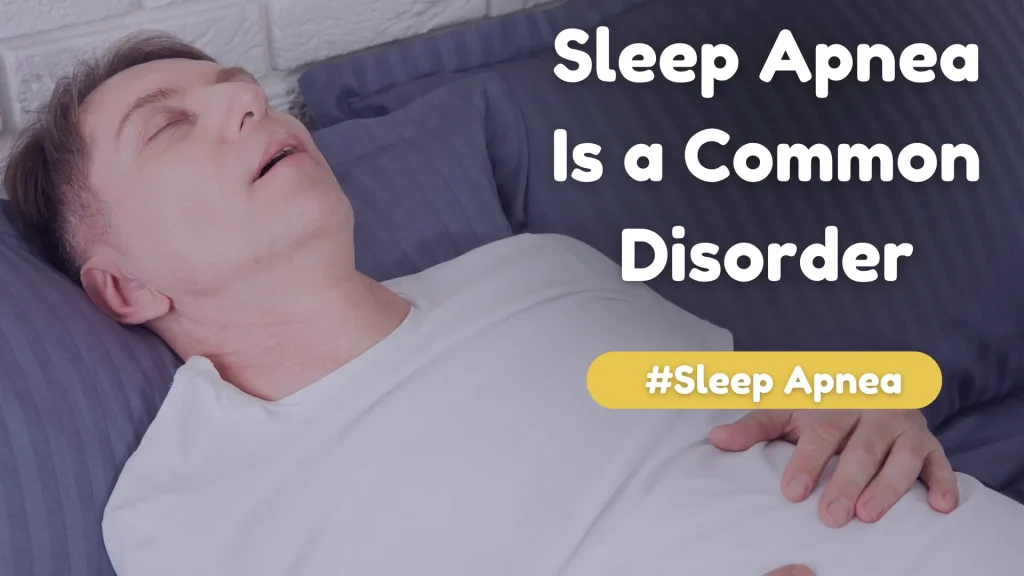Posted on Wednesday, November 1st, 2023 at 9:00 am
Sleep apnea is a common sleep disorder that affects millions of people. It occurs when breathing is interrupted during sleep, often causing other issues such as loud snoring, poor sleep quality, and daytime exhaustion.
Most people who have sleep apnea don’t know they have it. You may have sleep apnea issues if you’ve been snoring loudly or waking up repeatedly at night. In fact, it may be the real reason you’ve been feeling sleepy, irritable, or moody so often.
To find out whether you are experiencing sleep apnea and need the help, contact Silent Night Therapy or call 631-983-2463 today. Untreated sleep apnea can be life-threatening. We can help you get back to deep, uninterrupted sleep through various interventions, such as continuous positive airway pressure (CPAP) therapy or oral appliance therapy.
Sleep Apnea
There are two main types of sleep apnea. The most common type is obstructive sleep apnea, or OSA, in which the airway becomes constricted or obstructed during sleep. OSA happens when the muscles in your airway relax too much while sleeping, becoming too narrow for the breath to get through.
This can cause you to partially wake up, gasp loudly, snore, or make choking sounds several times to restore normal breathing. It wouldn’t be as problematic if it happened only occasionally, but it can occur many times throughout the night. You might not remember waking up since it only takes a brief awakening to resume proper breathing. That’s one reason so many people don’t realize they have sleep apnea.
How common of a disorder is sleep apnea? According to the National Sleep Foundation, obstructive sleep apnea affects about 10 percent of women and about 25 percent of men.
Central sleep apnea is much less common according to a study by Medscape, affecting less than one percent of the population. With central sleep apnea, there’s a problem in the communication between the brain and the breathing muscles. This causes shallow breathing with interruptions.
Prevalence of Sleep Apnea: Statistical Overview
According to the National Council on Aging, sleep apnea is more common than many realize. Worldwide, 963 million adults have obstructive sleep apnea, with 39 million in the U.S. Eighty percent of sleep apnea sufferers are undiagnosed.
Although central sleep apnea is much less common, it is more common among certain population groups. According to Medscape, central sleep apnea affects 25 to 40 percent of heart failure patients and 10 percent of stroke patients. It affects men more often than women and is most common after age 60.
Factors Influencing Sleep Apnea Occurrence
There are several factors influencing sleep apnea occurrence. According to the National Heart, Lung, and Blood Institute, you are more likely to experience sleep apnea:
- As you get older
- If you are male
- If you are overweight or obese
- If you drink alcohol or smoke
- If you have a family history of sleep apnea
- If you have heart failure, kidney failure, or an endocrine disorder
Additionally, sleep apnea poses a higher risk of high blood pressure, type 2 diabetes, stroke, and other medical conditions. According to MedlinePlus, the size of your tonsils, adenoids, tongue, and neck can all affect your chances of experiencing sleep apnea, as can having a relatively short lower jaw.
Regional Variances in Sleep Apnea Incidence

Regional variances in treatment for OSA exist. A study published in the Journal of Clinical Sleep Medicine found that more than 80 percent of patients in the Midwest had received positive airway pressure (PAP) treatment, while less than 73 percent of patients in the Northeast and Northwest had received the same treatment. Less than 70 percent of patients in California and the South adhered to PAP treatment.
Contact a Sleep Specialist Today
Sleep apnea is a problem you can have without knowing it, but that doesn’t mean it can’t harm you. If your partner has been complaining that you snore all the time or always feel sleepy and irritable without knowing why, you should get yourself checked for sleep apnea as soon as possible.
If you have sleep apnea, getting treated can greatly improve your quality of life. Contact Silent Night Therapy online or call 631-983-2463 today to schedule your consultation.
Related Posts:
How Sleep Apnea Progresses Over Time and the Importance of Treating It
